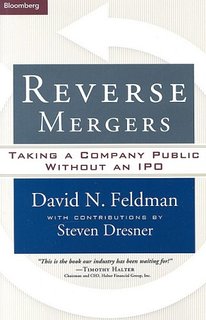
11 Sep Reverse Mergers Still Attractive Despite New Black Eye
The big guys get hit and sanctioned for improper activity in the securities world. Big banks and investment banks all pay for misdeeds, some callously viewing it as simply a cost of doing business. The Enron and WorldCom scandals, among others, taught us that big companies can also be fraudulent enterprises. Unfortunately, the small and microcap worlds, and reverse mergers in particular, also have their share of questionable characters. The latest is a well-known player in the space being accused of hiding his ownership in shells before they completed reverse mergers with Chinese companies and manipulating the trading and price of those stocks. He and others could face jail and big fines.
Sadly, we don’t see New York Times stories about the great reverse merger successes, like Texas Instruments, the New York Stock Exchange, Jamba Juice, Cougar Biotechnology and many others. And despite additional regulatory burdens added after dozens of Chinese companies were accused of fraud after reverse mergers, the technique remains worth considering if you deal with legitimate and experienced players. It is still the fastest way to get public and a very cost-effective method as well.
There are a number of ways to bring a public trading stock to companies that can benefit from that, including the new arrow in the quiver by the name of Regulation A+. In advising companies we make sure they understand each of the options and the advantages and disadvantages. The fact that a good technique has been abused has always seemed a shame to me. Reverse mergers are not for everyone, but they can be the right choice for some. Just stay on the high road!


No Comments